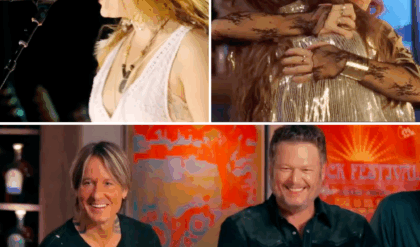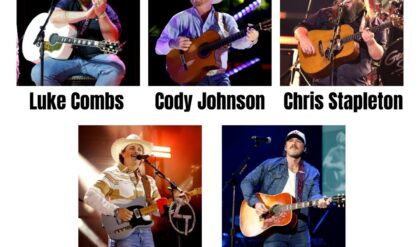While Elon Musk’s name dominates headlines with his audacious ventures in electric vehicles, space exploration, and artificial intelligence, his younger brother, Kimbal Musk, has quietly carved out his own legacy. Often overshadowed by Elon’s larger-than-life persona, Kimbal is a formidable entrepreneur in his own right, with a net worth estimated at $700 million. His journey began with co-founding Zip2, a software company sold to Compaq for $307 million in 1999, and has since evolved into a mission-driven empire focused on revolutionizing food systems and philanthropy. Kimbal’s story is one of resilience, reinvention, and a deep commitment to making the world a healthier, more sustainable place.
Born on September 20, 1972, in Pretoria, South Africa, Kimbal grew up in a family brimming with entrepreneurial spirit. His mother, Maye Musk, a model and dietitian, and his father, Errol Musk, an electromechanical engineer and property developer, fostered a household that valued ambition and creativity. Alongside his older brother Elon and younger sister Tosca, Kimbal was exposed to a culture of bold ideas and hard work. After completing high school in Pretoria, he moved to Canada to join Elon at Queen’s University in Kingston, Ontario, where he earned a business degree in 1995. During his university years, Kimbal gained early professional experience at Scotiabank, sharpening his understanding of finance and operations, which would later prove invaluable.
Kimbal’s entrepreneurial journey kicked off in 1994 when he launched a residential painting business with College Pro Painters, a venture that netted $50,000 over two years—an impressive feat for a student. But it was his collaboration with Elon in 1995 that marked his first major breakthrough. Together, they co-founded Zip2, a software company initially named Global Link Information Network. The idea stemmed from Elon’s observation during a 1994 internship, where a Yellow Pages salesman pitched an online business listing. Recognizing the internet’s potential, the brothers created a platform that provided online city guides, combining business directories with mapping software—a precursor to modern tools like Google Maps. Operating on a shoestring budget, they lived in their Palo Alto office, sleeping on futons and showering at a local YMCA. With $2,000 from Elon, $5,000 from Kimbal, $8,000 from friend Greg Kouri, and $28,000 from their father, they built Zip2 from the ground up.
Zip2 quickly gained traction, securing a $3 million investment from Mohr Davidow Ventures in 1996 and partnering with major newspapers like The New York Times and the Chicago Tribune to power their online directories. By 1998, the company had deals with 160 newspapers, offering arts and entertainment guides and e-commerce solutions. Despite a failed merger attempt with competitor CitySearch, Zip2’s growth culminated in its acquisition by Compaq in 1999 for $307 million, one of the largest cash deals in tech at the time. Kimbal, holding a smaller stake than Elon, walked away with $15 million, while Elon netted $22 million. At just 26, Kimbal had achieved financial independence, but his ambitions were far from over.
While Elon pursued tech ventures like X.com (which became PayPal), Kimbal took a different path. Intrigued by food’s power to connect people, he moved to New York City and enrolled at the French Culinary Institute in 2000. His passion for cooking, which began in childhood when he prepared meals for his family, deepened during this time. The September 11, 2001, attacks marked a turning point; Kimbal spent six weeks cooking for firefighters at Ground Zero, an experience that solidified his belief in food as a force for community and healing. In 2004, he co-founded The Kitchen, a farm-to-table restaurant in Boulder, Colorado, with chef Hugo Matheson and then-wife Jen Lewin. The Kitchen prioritized locally sourced ingredients, sparking a movement that reshaped American dining. It expanded to Denver, Chicago, and Austin, earning accolades from Gourmet, Food & Wine, and the James Beard Foundation.
Kimbal’s food ventures didn’t stop at restaurants. In 2016, he co-founded Square Roots, an urban farming company that grows fresh produce in climate-controlled shipping containers using hydroponic technology. Operating in cities like Brooklyn and Grand Rapids, Square Roots trains young farmers and supplies local, organic greens to urban communities. Kimbal also launched Big Green, a nonprofit dedicated to building “Learning Gardens” in schools across the U.S. Since its inception, Big Green has created over 700 outdoor classrooms, reaching 350,000 students daily with hands-on education about food and sustainability. In 2018, Big Green introduced a Web3-based “giving DAO” to democratize philanthropy, allowing supporters to fund and direct its initiatives. These ventures reflect Kimbal’s vision of a food system that is accessible, sustainable, and community-driven.
Beyond food, Kimbal has maintained a foothold in technology. He invested early in X.com, which merged with Confinity to form PayPal, acquired by eBay for $1.5 billion in 2002. He served as CEO of OneRiot, a social media analytics company, from 2006 to 2011, until its acquisition by Walmart Labs. In 2022, he acquired Intel’s light drone division to launch Nova Sky Stories, a company creating drone-based light shows for events. As a board member of Tesla since 2004 and SpaceX from 2002 to 2022, Kimbal has benefited financially from their success, with his Tesla shares alone valued at over $600 million in 2025. He also served on Chipotle Mexican Grill’s board from 2013 to 2019, influencing its shift toward sustainable sourcing.
Kimbal’s philanthropy extends beyond Big Green. Through the Chan Zuckerberg Initiative, he has supported education and health initiatives, and his restaurants often fund community programs. His commitment to sustainability earned him the title of Global Social Entrepreneur by the World Economic Forum in 2018. Unlike Elon’s focus on interplanetary ambitions, Kimbal’s goals are grounded in improving life on Earth. He describes his approach as “in the ground,” contrasting with Elon’s “stratospheric” vision. This philosophy is evident in his advocacy for local farmers, urban agriculture, and food education, which he promotes through his 200,000-strong Instagram following and appearances on shows like 60 Minutes and Chopped.
Kimbal’s personal style—marked by his signature cowboy hat and rugged charm—has made him a recognizable figure at high-profile events, from the Kering Foundation’s charity dinners to Tesla shareholder meetings. Married to Christiana Wyly since 2018, he is a father of three and balances his entrepreneurial life with personal passions like cooking and gardening. His net worth, estimated at $700 million in 2025, stems from the Zip2 sale, PayPal profits, Tesla stock, and his food ventures. While Tesla’s stock volatility has caused fluctuations—peaking at $1.3 billion for Kimbal at one point—his diversified investments in tech and sustainable food ensure financial stability.
Despite his wealth, Kimbal remains approachable, often sharing his journey on social media with humor and authenticity. He once recounted on the Lex Fridman podcast the grueling days at the French Culinary Institute, where he endured hours of being “screamed at” to perfect his craft. His resilience, forged in the scrappy days of Zip2, carries through to his current ventures. Kimbal’s ability to pivot from tech to food, blending Silicon Valley’s hustle with a chef’s heart, sets him apart. He has also navigated personal challenges, including a 2010 skiing accident that left him temporarily paralyzed, yet he recovered to climb Mount Kilimanjaro in 2013.
As of 2025, Kimbal continues to innovate. The Kitchen Restaurant Group is exploring new locations, while Square Roots plans to scale its urban farms to more cities. Big Green aims to reach 1 million students by 2030, and Nova Sky Stories is expanding its drone technology for global events. Kimbal’s investments in startups like Tock and Upside Foods signal his belief in technology’s role in sustainable food systems. Meanwhile, his Tesla board role keeps him tethered to the tech world, where he advocates for clean energy alongside his food activism.
Kimbal Musk may not command the global stage like Elon, but his impact is profound. From co-founding Zip2 to pioneering farm-to-table dining and urban farming, he has transformed how we think about food and community. His $700 million fortune is a testament to his business acumen, but his true legacy lies in his mission to make “real food” accessible to all. As the world grapples with climate change and food insecurity, Kimbal’s grounded approach offers a blueprint for sustainable change—one garden, one meal, one community at a time.





